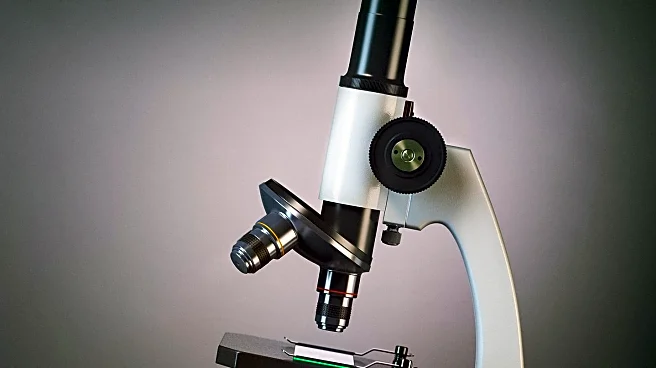What's Happening?
Researchers at the University Hospital Hamburg-Eppendorf (UKE) have introduced a novel method called pathology-orientated multiplexing (Pathoplex) for analyzing proteins in tissue samples. This technique allows for the simultaneous examination of over 100 proteins within a single sample, potentially revolutionizing the early detection and personalized treatment of diseases. The development aims to identify changes in tissue at an early stage, which could lead to more effective and tailored medical interventions. The research team is optimistic that Pathoplex will significantly advance the understanding and treatment of various conditions, including diabetic kidney diseases.
Why It's Important?
The introduction of Pathoplex is a significant advancement in medical research, particularly in the field of personalized medicine. By enabling the analysis of multiple proteins simultaneously, this method could lead to earlier detection of diseases, allowing for timely and more effective treatments. This is particularly crucial for conditions like diabetic kidney diseases, where early intervention can prevent severe complications. The ability to tailor treatments based on specific protein changes in tissues could improve patient outcomes and reduce healthcare costs associated with late-stage disease management.
What's Next?
The research team at UKE plans to further explore the applications of Pathoplex in various medical fields. Future studies may focus on expanding the use of this method to other diseases, potentially leading to breakthroughs in personalized medicine. Additionally, collaborations with other research institutions could enhance the development and implementation of Pathoplex, making it a standard tool in clinical diagnostics. The ongoing research and potential partnerships may pave the way for widespread adoption of this technology in healthcare systems.
Beyond the Headlines
The development of Pathoplex also raises ethical considerations regarding personalized medicine. As treatments become more tailored to individual patients, issues related to data privacy and consent may arise. Ensuring that patients are informed and their data is protected will be crucial as this technology becomes more prevalent. Furthermore, the accessibility of such advanced diagnostic tools in different healthcare settings could impact health equity, necessitating discussions on how to make these innovations available to all patients.








